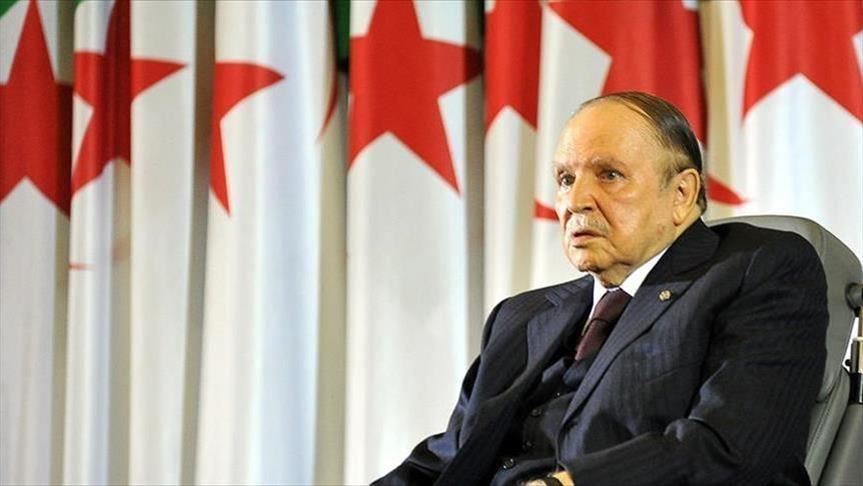PROFILE: Former Algerian President Abdelaziz Bouteflika
82-year-old Bouteflika stepped down this week after almost two decades in power
 Former Algerian President Abdelaziz Bouteflika
Former Algerian President Abdelaziz Bouteflika
ANKARA
Algerian President Abdelaziz Bouteflika resigned Tuesday after almost two decades in power.
In his resignation letter, Bouteflika said his decision to step down -- some three weeks before the expiry of his fourth term in office -- was aimed at “averting a crisis”.
The move, he added, was intended to “put people’s minds at ease so they might collectively take Algeria to the future they aspire to”.
Bouteflika, 82, served as president of Algeria from April 1999 until April 2019, when he was forced to step down due to popular pressure.
Until his successor is chosen, Abdelkader Bensalah, speaker of the upper house of Algeria’s parliament, will carry out presidential responsibilities for a 90-day interim period.
Bouteflika was born March 2, 1937 in Morocco’s eastern Oujda province, located near the Algerian border.
He spent much of his early life in Algeria, since his family was originally from Algeria’s northern Tlemcen province.
At the age of 19, Bouteflika joined the National Liberation Army, the military wing of the National Liberation Front (FLN).
One year later, he officially joined the FLN, which fought French colonial rule during Algeria’s war of independence (1954-1962).
In 1960, he became an officer in the National Liberation Army.
After Algeria won its independence in 1962, he was appointed cabinet minister for youth, sports and tourism.
Not long afterward, at the age of 26, he was appointed foreign minister in the Algerian government.
In 1981, Bouteflika left Algeria for the Arab Gulf, where he served as advisor to Sheikh Zayed bin Sultan Al Nahyan, then ruler of the United Arab Emirates.
After returning to Algeria, Bouteflika won presidential elections in 1999. The opposition at the time accused him of rigging the vote following the withdrawal of six other candidates.
During his first term, Bouteflika focused on rebuilding the country and strengthening Algeria’s international image.
When Algeria held the African Union’s rotating presidency, Bouteflika managed to stop a conflict between Ethiopia and Eritrea, with the two sides signing the Algiers Peace Agreement in late 2000.
Bouteflika won reelection in 2004. During his second term, he narrowly escaped an assassination attempt -- allegedly by Al-Qaeda -- on Sept. 6, 2007.
Bouteflika later began experiencing health problems, leading to speculation about his fitness for office.
In 2006, he played a crucial role in reaching a peace agreement between rebel groups and the Malian government.
Bouteflika won a fourth term in office -- with 90 percent of the vote -- in 2009 polls, the integrity of which was questioned by the opposition.
His fourth term saw a raft of government reforms, including the replacement of the Intelligence Department -- seen by many as a “state within a state” -- with a new security agency run directly by the president.
Already in fragile health, Bouteflika suffered a stroke in 2013 confining him thereafter to a wheelchair.
In February of this year, the FLN nominated him to run for a fifth term in office.
But on March 11, following weeks of protests against his presidential bid, he abruptly postponed the election and formally withdrew his candidacy.
Bouteflika finally resigned on April 2 after Army Chief-of-Staff Ahmed Ahmed Gaid Saleh called for his “immediate departure” in line with the constitution.
Anadolu Agency website contains only a portion of the news stories offered to subscribers in the AA News Broadcasting System (HAS), and in summarized form. Please contact us for subscription options.

